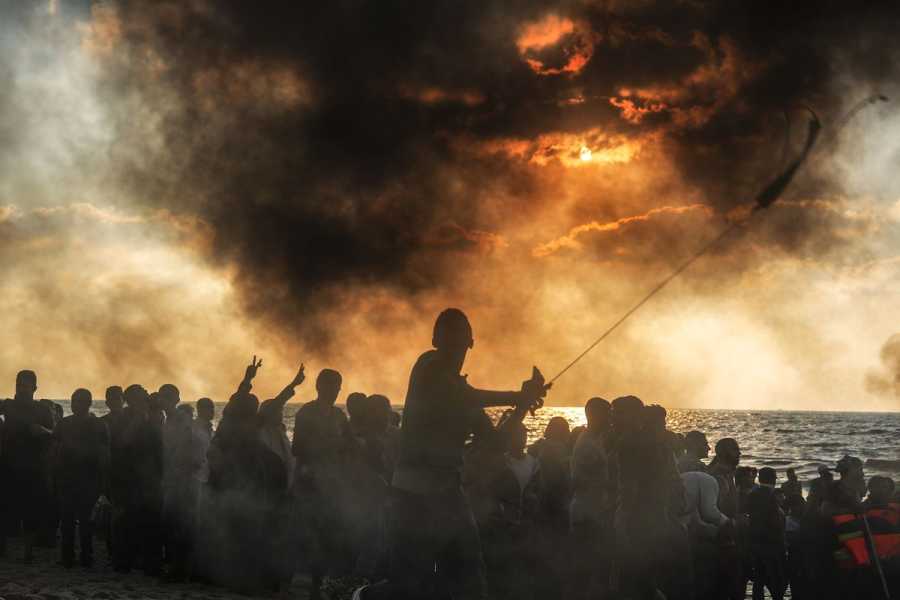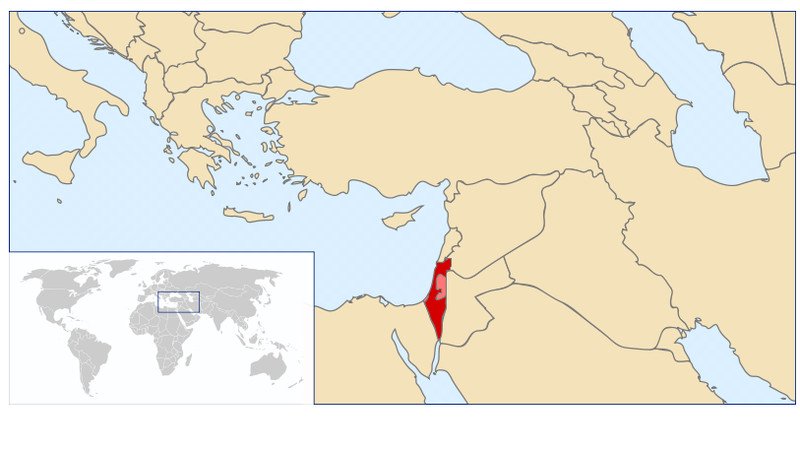Israeli Jews and Palestinian Arabs both want the same land. And a compromise has proven difficult to find.

Palestinians gather to show their support to a 20-vessel flotilla that set out Monday from the northern Gaza Strip in hopes of breaking the decade-long blockade of the coastal enclave. Ali Jadallah/Anadolu Agency/Getty Images Zack Beauchamp is a senior correspondent at Vox, where he covers ideology and challenges to democracy, both at home and abroad. Before coming to Vox in 2014, he edited TP Ideas, a section of Think Progress devoted to the ideas shaping our political world. Part of Everything you need to know about Israel-Palestine
Editor’s note, November 9, 2023: This story has been updated to reflect details of the current Israel-Hamas war. For all of Vox’s latest coverage on Israel and Palestine, see our storystream.
Israel is the world’s only Jewish state, located just east of the Mediterranean Sea. Palestinians, the Arab population that hails from the land Israel now controls, refer to the territory as Palestine, and want to establish a state by that name on all or part of the same land. The Israeli-Palestinian conflict is over who gets what land and how it’s controlled.

Israel is in red, while the Palestinian-majority territories are in pink. Vardion
Though both Jews and Arab Muslims date their claims to the land back a couple thousand years, the current political conflict began in the early 20th century. Jews fleeing persecution in Europe wanted to establish a national homeland in what was then an Arab- and Muslim-majority territory in the Ottoman and later British Empire. The Arabs resisted, seeing the land as rightfully theirs. An early United Nations plan to give each group part of the land failed, and Israel and the surrounding Arab nations fought several wars over the territory. Today’s lines largely reflect the outcomes of two of these wars, one waged in 1948 and another in 1967.
The 1967 war is particularly important for today’s conflict, as it left Israel in control of the West Bank and Gaza Strip, two territories home to large Palestinian populations:

Note that since 1967, Israel has returned Sinai to Egypt. BBC News
Today, the West Bank is nominally controlled by the Palestinian Authority and is under Israeli occupation. This comes in the form of Israeli troops, who enforce Israeli security restrictions on Palestinian movement and activities, and Israeli “settlers,” Jews who build ever-expanding communities in the West Bank that effectively deny the land to Palestinians. Gaza is controlled by Hamas, an Islamist militant group; it has been under an Israeli blockade since Hamas seized control in 2007, one so stringent that human rights groups liken the situation to an “open-air prison.”
Currently, Israel is at war with Hamas — a conflict following a horrific rampage on October 7, 2023, in which militants from Hamas and Palestinian Islamic Jihad, another extremist group, launched attacks that killed more than 1,400 Israelis and took more than 240 hostage. Israel has responded with widespread bombardment of the Gaza Strip and a ground incursion, killing and injuring tens of thousands of Palestinians.
The internationally supported political solution to the broader conflict, endorsed in the past by both Israel and the Palestinian Authority, is a so-called “two-state solution.” That would establish Palestine as an independent state in Gaza and most of the West Bank, leaving the rest of the land to Israel. Though the two-state plan is clear in theory, the two sides are still deeply divided over how to make it work in practice. Moreover, influential factions on both sides outright oppose it.
The alternative to a two-state solution is a “one-state solution,” wherein all of the land becomes either one big Israel, one big Palestine, or some kind of shared state with a new name. Generally speaking, these outcomes seem even less likely at present than two states — making it hard to imagine any kind of formal resolution happening anytime soon.
Predicting the future of the conflict is even harder in the wake of the October 7 attack and subsequent war in Gaza. The war is such a major development, with such major implications for the region, that it could transform the nature of Israeli-Palestinian relations as we know them.
Sourse: vox.com